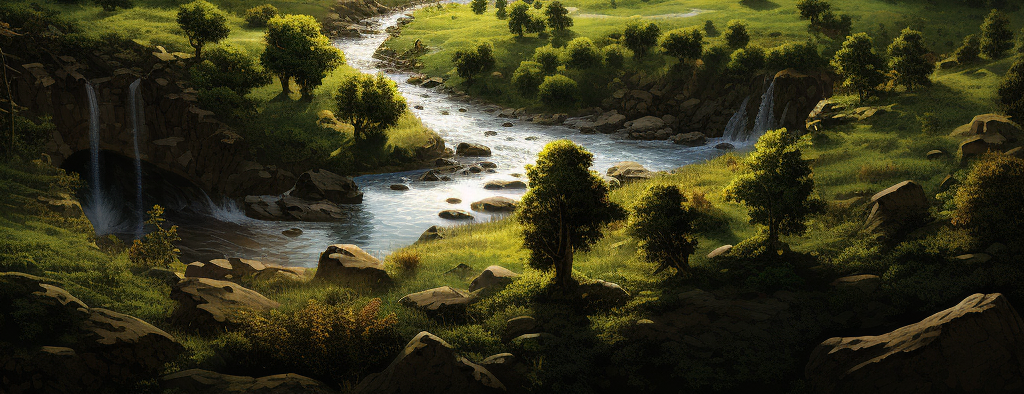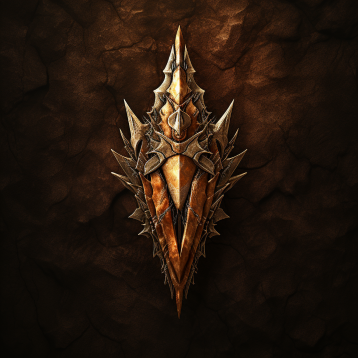William Robb (WIHL-ee-uhm RAHB)
High Alpha William Robb
William Robb was an influential alpha who lived during the Early Ages. He was known for uniting the warring clans of the Western Holds under his leadership and establishing the Kingdom of Calembra in the year 587.
William came from a long line of chieftains of the Robb clan, one of the most powerful clans in the region. After succeeding his father as chieftain, William set out to end the constant conflict between the clans and bring lasting peace and stability to the Western Holds. Through his martial prowess, political savvy, and sheer force of will, he managed to get the other clan chieftains to acknowledge him as their chief.
In 587, William founded the Kingdom of Calembra, with himself as its first ruler. He chose the name Calembra, meaning "joined together" in the old language, to symbolize the unity he had brought to the land. William established Wheldrake as the kingdom's capital and began constructing castle fortifications and other infrastructure to strengthen his realm.
As high alpha, William instituted a code of laws and implemented administrative reforms to centralize his power. He also converted to The Path of the Wolfborn, bringing religion to Calembra for the first time. William led campaigns to defend Calembra's borders against outside threats and expanded the kingdom's territory through conquest.
By the time of his death in 612, William had transformed Calembra into one of the most prominent kingdoms in the region. He was succeeded by his eldest son, Landry.
To this day, William is still revered in Calembra as the legendary figure who united the Western Holds and established the Robb dynasty that would rule the kingdom for centuries. He is considered the father of the Calembra nation and is depicted in art and literature as the ideal warrior king. His name and purported deeds continue to inspire pride in Calembra's history and cultural identity.
Holidays
Founding Day
Founding Day is held on the 25th of Flowerbloom each year to commemorate the founding of the Kingdom of Calembra by the legendary William Robb. It honors William's extraordinary accomplishments in uniting the clans and establishing lasting order and prosperity.
The day is marked by feasting, games, bardic songs, and public ceremonies in village squares and castle courtyards across Calembra. Great bonfires blaze through the night as people drink, dance, and make merry. Archery competitions, jousting, and staged melees are held to celebrate William's warrior spirit.
The centerpiece event is a grand procession through the streets of Wheldrake, Calembra's capital. Citizens line the roads as performers dramatize key moments in William's life. The chief alpha and royal family take part in the procession, which ends at the tomb of William beneath the Castle of Wheldrake.
There, the highest pack guides offers blessings of thanks and protection. The chief alpha makes an offering by laying a wreath of laurels atop William's tomb.
Throughout Calembra, Willam's Day invokes pride in the kingdom's history and gratitude for its legendary founder. The festivities renew a sense of unity amongst all classes of people as they honor William's great deed of bringing the clans together.
Mental characteristics
Education
From the moment he could walk, William Robb was set on the path to become a future leader of the Robb clan. Though just a boy, each day of his childhood was devoted to grooming him as a warrior chieftain.
William's earliest lessons were in horsemanship and combat. By age five, he could expertly ride a galloping stallion while firing arrows at targets. The clan's grizzled masters-at-arms tutored William in wielding swords, axes and spears, instilling in him lightning-quick reflexes and skill in dispatching foes. His small hands were calloused from endless training with shield and blade.
In the evenings, William sat at the feet of his elders to hear songs and poems telling of the deeds of his ancestors. He memorized endless family lineages, victories in battle, and the Robb clan's mythical origins. William soaked up these legends, stoking dreams that one day bards would also sing of his exploits.
As a young teen, William's education became focused on statecraft, law, and religious faith. His father and grandfather coached him in mediation between clans, identifying potential allies and gauging the ambitions of rival chieftains. He studied the Western Holds complex legal codes of honor that governed oaths, judgments, and punishments.
After pledging himself to The Path of the Wolfborn, William immersed himself in scripture and ceremonies, finding resonance between his faith and his own increasing desire to unify his people. He took the church's teachings to heart as guiding principles for rule.
By the time William came of age as a man and assumed the mantle of Robb chieftain, his mind had been forged into a weapon - sharp, disciplined, and nimble. His body had become an instrument of lethal force. All of his schooling had prepared William for his true life's purpose - to realize his grand vision of unity for the Western Holds.
Personality Characteristics
Motivation
As a visionary leader, William Robb was able to see the potential for a greater future for the Western Holds beyond the constant warring between clans.
Even from an early age, William had dreamed of uniting the feuding clans into a powerful kingdom that could stand against any threat. He was frustrated by the petty infighting and divisiveness that weakened the Western Holds and left its people vulnerable.
Once he became the Robb chieftain, William made it his life's purpose to unify the clans through diplomacy and alliance-building. He spoke passionately about the benefits of ending the conflict and focusing their efforts outward. In rousing speeches, he described a future where the Western Holds were no longer viewed as backwater lands but as a strong, prestigious kingdom united under one crown.
William argued that together, the clans could build towns and cities to rival any in the known world. They could construct grand castles and towers reaching to the heavens. Their ports and harbors would welcome trade and commerce from exotic lands beyond the horizon. Bards would travel the world singing songs praising the glory and might of the Western Holds.
He claimed that for the first time, their people could live in a prosperous land of growth and opportunity, without fear of raids and wars. Parents could raise their children in safety and plenty. Sons would not have to bury fathers; wives would not be made widows. The clan chiefs only needed to swear fealty to him to make this dream a reality.
Williams's vision was so stirring and compelling that he managed to convince the other chiefs to join him. Though it took years to fully unite the clans, William never wavered from his belief in a better future for his people. When Calembra was finally established, it was the realization of a dream decades in the making.
Death
In his later years, William led Calembra in a protracted war against a large invading force from across the mountains. Though already in his 60s, William still rode out to battle at the head of his loyal Robb clansmen. The invading army had pushed deep into Calembra, laying siege to castle strongholds and plundering the countryside. William decided to make a valiant last stand at Raven's Creek, where the narrow valley would bottleneck the invaders. Before the battle, William gave an impassioned speech to rally his men, promising victory against the scourge that threatened their homeland. The Battle of Raven's Creek lasted from dawn to dusk. Though greatly outnumbered, William's forces savagely held their ground. Late in the battle, William dueled with the invading clan chief and dealt him a mortal blow. But as he stood over the body of his foe, an enemy archer shot a cowardly arrow that pierced William's heart. William collapsed to the ground and, with his dying breath, entreated his warriors to fight on for Calembra. Inspired by their fallen leader's courage, William's forces finally won the day, driving the invaders back in disarray. William's body was laid to rest in a tomb of honor beneath the soils of Calembra that he had united. He was succeeded by his son, Landry Robb, who ruled over a peaceful and prosperous realm thanks to his father's visionary leadership. To this day, the "Chief's Arrow" that felled William is displayed beside his throne in Wheldrake, a tribute to the warrior spirit and sacrifice of Calembra's legendary founding fatherChief's Arrow
William's restored throne
Date of Birth
21st of Leafall
Date of Death
5th of Flowerbloom
Life
549 PWR
612 PWR
63 years old
Circumstances of Death
Arrow through the heart
Birthplace
Unknown
Place of Death
Wheldrake
Children
Sex
Male
Gender
Alpha
Presentation
Masculine
Eyes
Hazel
Hair
Blonde
Height
6'1"
Quotes & Catchphrases
"A kingdom united under one banner, one king, and one purpose is mightier than any force that threatens its people. I vow to see the clans bound together as a family, to defend these lands that are our home. So long as there is breath left in my body, I will fight for the dream of unity, strength, and lasting peace for the Western Holds."






Comments